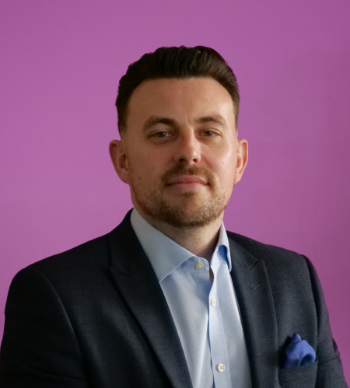Attracting Top Finance Talent in South Yorkshire in 2026: Employer Strategies That Stand Out
Historically, the best finance professionals have not only been in high demand but have also had increasingly high expectations — and in today’s competitive South Yorkshire finance market, that reality is truer than ever. For over 33 years, Sharp Consultancy has been working closely with businesses across Sheffield, Doncaster, Rotherham, and Barnsley. In that time, we’ve witnessed firsthand how the landscape of finance recruitment has evolved. When it comes to attracting and securing top-tier finance talent, we know what works — and, perhaps more importantly, what doesn’t. Local Reputation Matters More Than Ever In South Yorkshire especially, local reputation counts. Candidates talk, and businesses talk. The region’s finance community is tightly knit, and news travels fast — both good and bad. Employers who invest in building a strong, authentic brand that reflects real employee experiences tend to win out. That means it’s not enough to simply advertise a competitive salary or an attractive job title. Modern candidates want to understand what life inside your business looks like — the day-to-day culture, the leadership style, and the opportunities for growth. Visibility through employee stories, community engagement, and transparent communication all help to create a reputation that draws people in rather than pushes them away. What Candidates Want in Today’s Market In 2026, the expectations of finance professionals have broadened significantly, particularly at the qualified level. While salary remains important, it’s no longer the sole deciding factor. In fact, some of the best offers we see accepted each year aren’t the highest in monetary terms — they’re the most considered and holistic. Top candidates want to join businesses that offer purpose, balance, and progression. They look for roles that align with their values and allow them to contribute meaningfully, while still developing their technical and commercial skillsets. If you want to attract the best, you must clearly articulate what sets your company apart — your Employer Value Proposition (EVP). Ask yourself: What makes working with you different? Is it access to senior leadership, commercial exposure, or involvement in exciting transformation projects? What development or training support do you offer? Are there structured pathways, mentoring programmes, or professional study sponsorships? How flexible are you? Can employees work hybrid schedules, compressed hours, or part-time to suit their lifestyles? What additional perks or benefits do you provide — from wellness initiatives to social impact days or volunteering opportunities? The most successful employers communicate these points clearly, consistently, and confidently — both during recruitment and throughout the employee lifecycle. The Need for Speed and Agility Another critical factor in attracting top talent is speed. In a fast-moving market, long or disjointed hiring processes can easily result in losing outstanding candidates. Strong finance professionals are rarely on the market for long, and delays at the offer or feedback stage can make the difference between securing or losing your preferred hire. Where possible, streamline your recruitment process. Ensure hiring managers are aligned on the role requirements, keep communication clear, and aim to deliver feedback promptly. Demonstrating decisiveness reflects positively on your business and reinforces the message that you value candidates’ time and enthusiasm. Transparency Builds Trust We’ve seen a notable shift in what candidates are asking during interviews. Increasingly, they want to know why a role is vacant. Is it due to growth, internal promotion, or turnover? A vague answer or a history of short-lived hires can quickly raise red flags. Conversely, when a company can confidently articulate its purpose, culture, and long-term vision, candidates engage more readily — and are more likely to accept offers. Our clients who have invested in defining and communicating these messages attract stronger pipelines of finance professionals, often before roles even go live. A clear, honest narrative about your organisation not only draws in talent but helps retain it too. Partner with a True Specialist If you’re looking to recruit the best talent in the market, the right partnership can make all the difference. Working with a true specialist who understands your business, your sector, and the nuances of the South Yorkshire market will save time and boost your hiring outcomes. At Sharp Consultancy, our clients benefit from: Pre-qualified shortlists of candidates who are thoroughly vetted for skills, culture fit, and long-term potential. Access to passive candidates, many of whom we’ve nurtured relationships with over years and who may not be actively searching. Honest feedback on your employer brand and market perception — so you can make informed improvements that strengthen future recruitment efforts. Because of our deep local networks, we often know when an outstanding finance professional is about to enter the market. That insight gives our clients a competitive edge in securing the very best talent before others are even aware they’re available. Going Beyond Recruitment Our role extends well beyond active recruitment. We pride ourselves on offering genuine consultative advice, including: Salary benchmarking and market insights Case studies from recent successful hires Ongoing check-ins and relationship management — not just when you have a live vacancy This proactive approach means that when you are ready to hire, we already understand your business, your values, and the type of people who will thrive in your environment. Contact Jack to Discuss Our Services-- Attracting the best finance talent in South Yorkshire takes more than a strong job spec and a competitive package. It’s about authenticity, agility, and alignment — knowing who you are as a business, what you stand for, and who you want to work alongside. After more than 30 years supporting companies across the region, Sharp Consultancy continues to help employers build finance teams that not only perform — but stay, grow, and make a real impact.
Read article



.png)